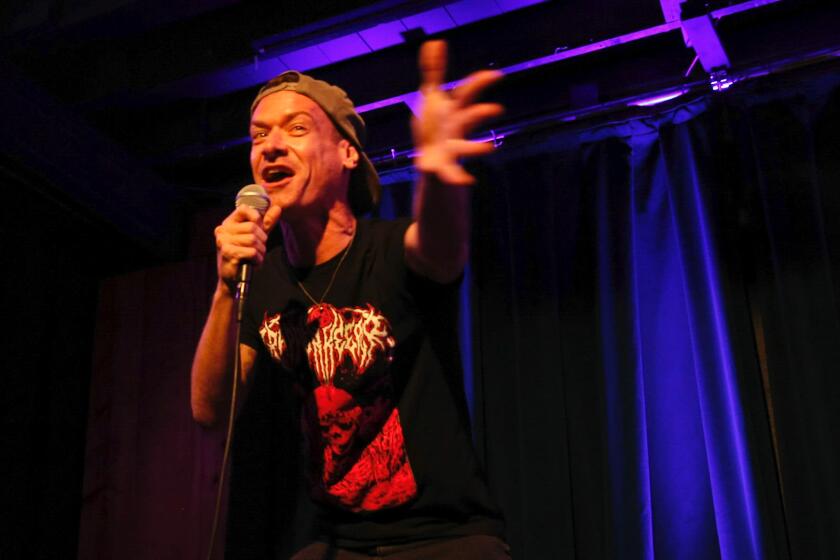‘The third coast of comedy’: Austin’s comedy scene tells us why they’re blowing up
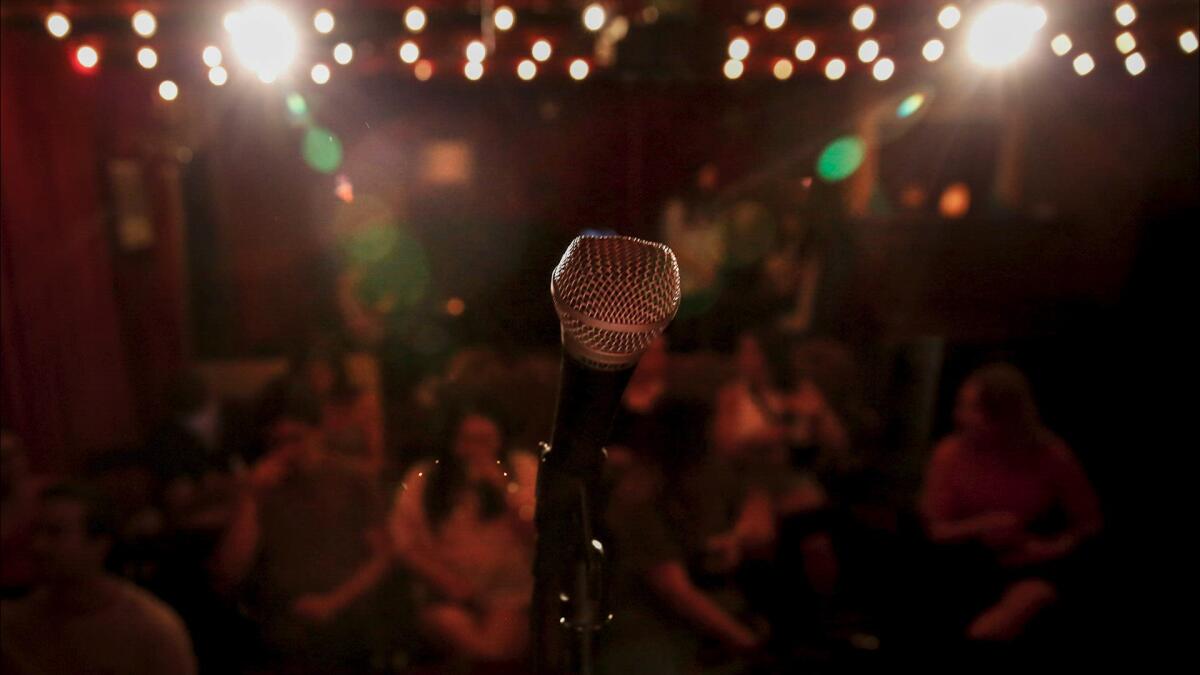
- Share via
AUSTIN, Texas — During Austin’s evolution into a bona fide hub for comedy, Texas comics who told their L.A. peers to “move over,” “take a seat” and “hold our beer” probably didn’t think the Angelenos would actually take them up on it. The result has been a great migration of some of L.A.’s biggest names onstage and behind the scenes in the comedy world, who are happily planting themselves in Texas, beer in hand, laughing their butts off.
Last week, we did a story on how Austin’s booming stand-up scene is inspiring headlining and open-mic comics from all over the country to take part in making the local culture even bigger. There are so many reasons for their glow-up that they couldn’t fit into one article. Don’t worry, we’ll be back. For now, we asked a number of local comics, club owners, promoters and writers to tell us why the Austin comedy scene deserves to be seen.
The absence of industry and influencers
David Lucas, comedian: The thing that I love about the Austin comedy scene right now is that there’s no agencies or studios out there. So my focus ain’t shucking and jiving to be seen by Netflix or HBO — it’s pure comedy. And when you get a place where it’s pure comedy, you get to see some of the best s—.
Dean Stanfield, comedian: Austin was more free to say anything you want from a comedy perspective, but these days it’s bottlenecked. It used to be that you could get away with saying anything because there was nothing to lose, no one’s careers were on the line. But now there’s more people coming in so there’s more pressure — like if you say something wrong, what was the start of your career could end just as easily. It’s still a lot more free than L.A.’s comedy scene, I think.
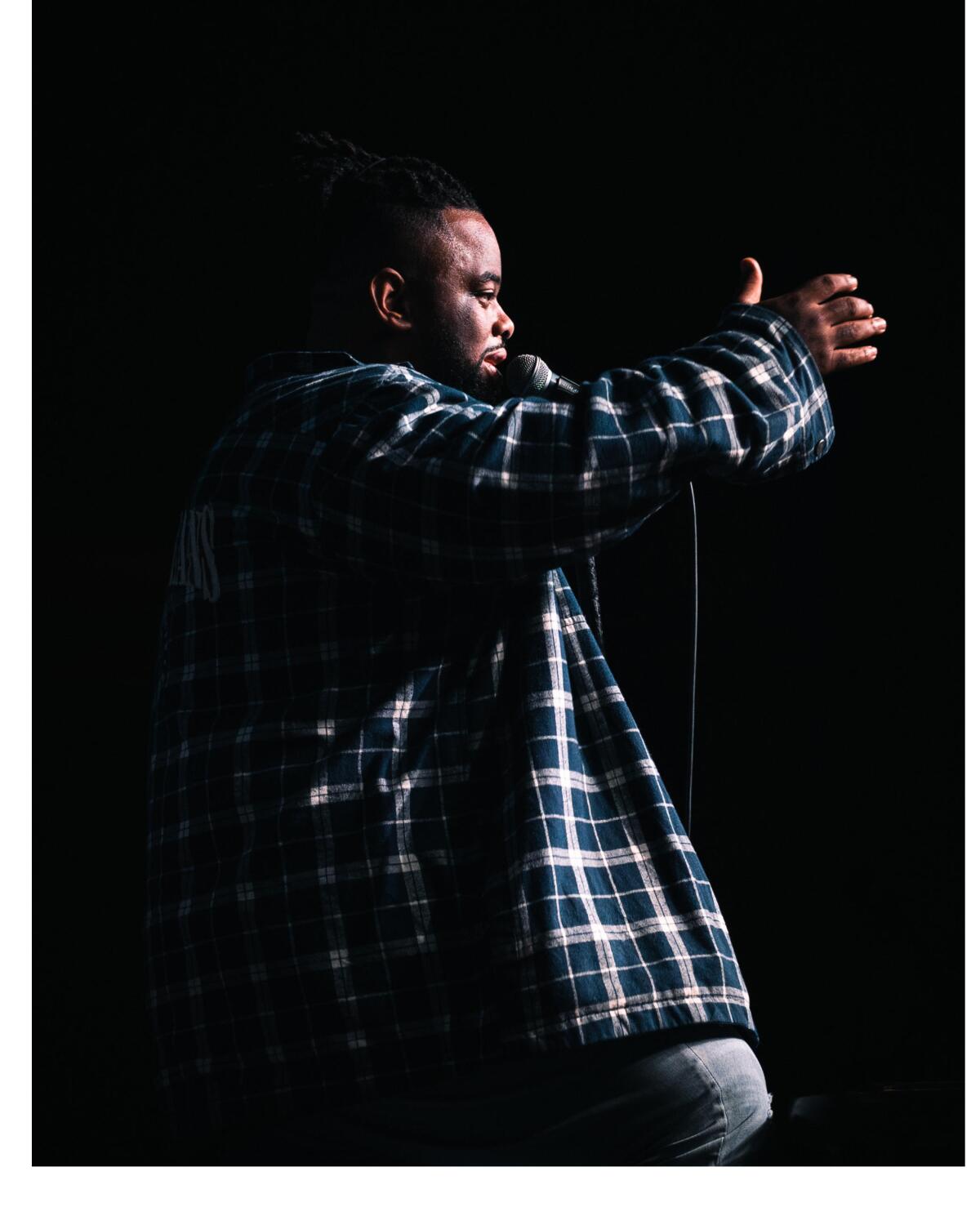
Comedy Mothership is changing the game
Lucas: Never in the world has a comedy club been made by a comedian, taken suggestions from comedians and been built for comedians. [The Comedy Mothership] even offers comedians healthcare. Joe Rogan made this club so that comedians can work in town and pay their rent and take care of their business. When you start working at the Comedy Mothership it’s like, “Damn is this what fairness looks like?”
Taylor Dowdy, comedian and general manager at the Velveeta Room: As a comic, I think somebody like Rogan opening Mothership is kind of a blessing. What else could you ask for, really? You always heard legendary stories of the Comedy Store. But who’s got the time and money to fly out to L.A. and try to get onstage there? It’s nearly impossible. And now [in Austin] it’s basically right down the street.
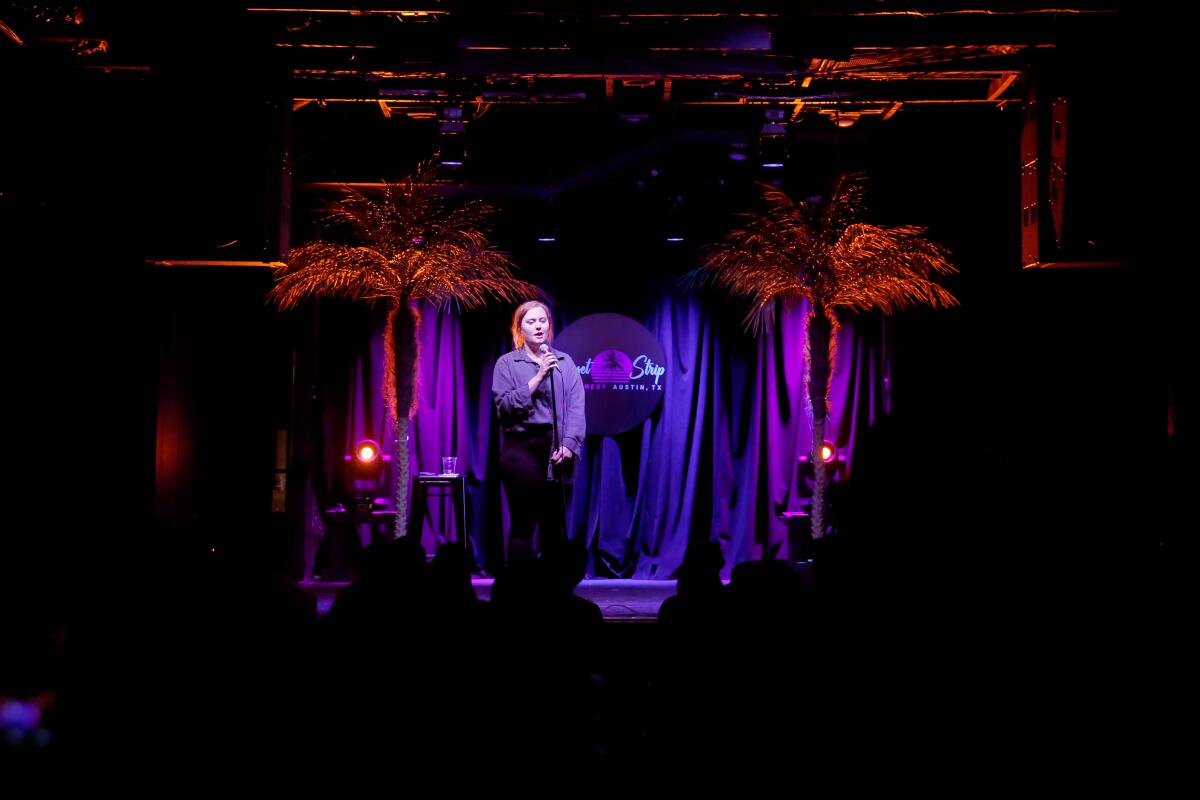
Sunset Strip creating an ’80s comedy revival
Anthony Hashem, co-owner of Sunset Strip Comedy Club: It’s cool to use the Sunset Strip in our name because, in its heyday in the ’80s, Richard Pryor was crushing at the Comedy Store, and then right down the street, it was equally a rock ’n’ roll boom. So that’s kind of what I knew about Austin being [a local]. It’s a music town. But we could literally reinvent the Sunset Strip — there’s killer rock ’n’ roll bands playing right next door to crushing comedians. It’s palpable — there’s something in the water in Austin right now. Luckily, we’re all drinking it.
Brian Redban, comedian and co-owner of Sunset Strip Comedy Club: After I invested [in Sunset Strip Comedy Club] I realized, ‘Oh, I gotta tell Rogan about this, I’m opening a club right next to him, I still work for Joe full-time [and] this is probably a bad idea. Maybe I could get fired for this, but I kinda fell into it because I loved the other owners and the comedy club they made.’ The fact that it was in a historic building [once occupied by music venue the Parish], it just screams classic comedy club; it’s like a playground for comics. And sure, it was really uncomfortable to tell Joe. I got really drunk at his club, he has a bar called Mitzi’s — named after the late Mitzi Shore. I was hanging out with him on opening night at the Mothership and I said, “Hey Joe, I got something to tell you.” I was so glad I was drunk. But when I told him, his reaction was like, “Are you f— kidding?! That’s awesome!” And now we joke about it all the time.
Christina Alvarado, co-owner of Sunset Strip Comedy Club: As a fan of comedy, I think it’s very important for me, [Brian] Redban and Anthony [Hashem] to develop comics, give them stage time and have a home for them. We respect that this is their career and it’s not just a place or a job. So if they have a spot down the street, and they need to go get onstage for 10 minutes, I tell them go, we’ll get [your shift temporarily covered], go do your spot and then come back and work. We don’t want to stunt your growth.
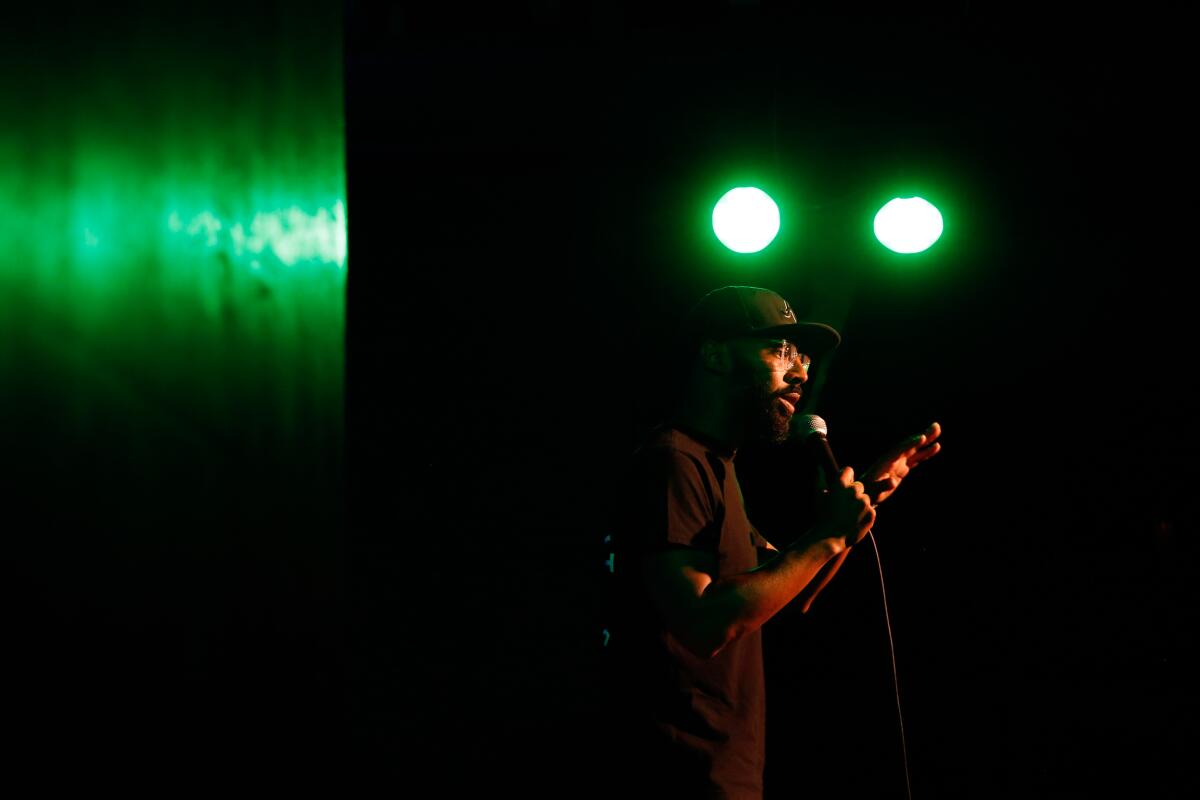
More stage time for everyone
Kiko Villamizar, comedian: There’s a lot of stage time [in Austin], so it’s really good that everybody moved here. I mean, it makes it harder if you’re not sure of yourself. It’s a lot of comics, so I guess you could look at it as a lot of competition. But for me, I quite enjoy all the noise around it because I don’t really look at it that way. I think more comedy is a good thing for everybody. Even open mics have a lot of civilian crowds in the audience, so it’s not just a bunch of cross-armed comedians judging you.
Raza Jafri, comedian and co-owner of East Austin Comedy and South Austin Comedy: [Andre Ricks and I] started [East Austin Comedy Club] a year ago, and it was kind of in response to the growing demand and kind of appreciation for comedy in Austin. So rather than us starting a club after the fact, I think we moved here because nowhere else was open during the pandemic. And so I was looking for a place to perform comedy. As a comic, you could get up onstage at least once a day when I first got here in 2021. But there was a demand from an audience perspective and the talent pool is enormous here. In the last two, three years, there were a lot of younger comics who moved out here in the hopes that Rogan’s club would eventually open up. There was opportunity here, and now it seems like there’s like more midcareer comics who are migrating down here as the city gets more established in comedy.
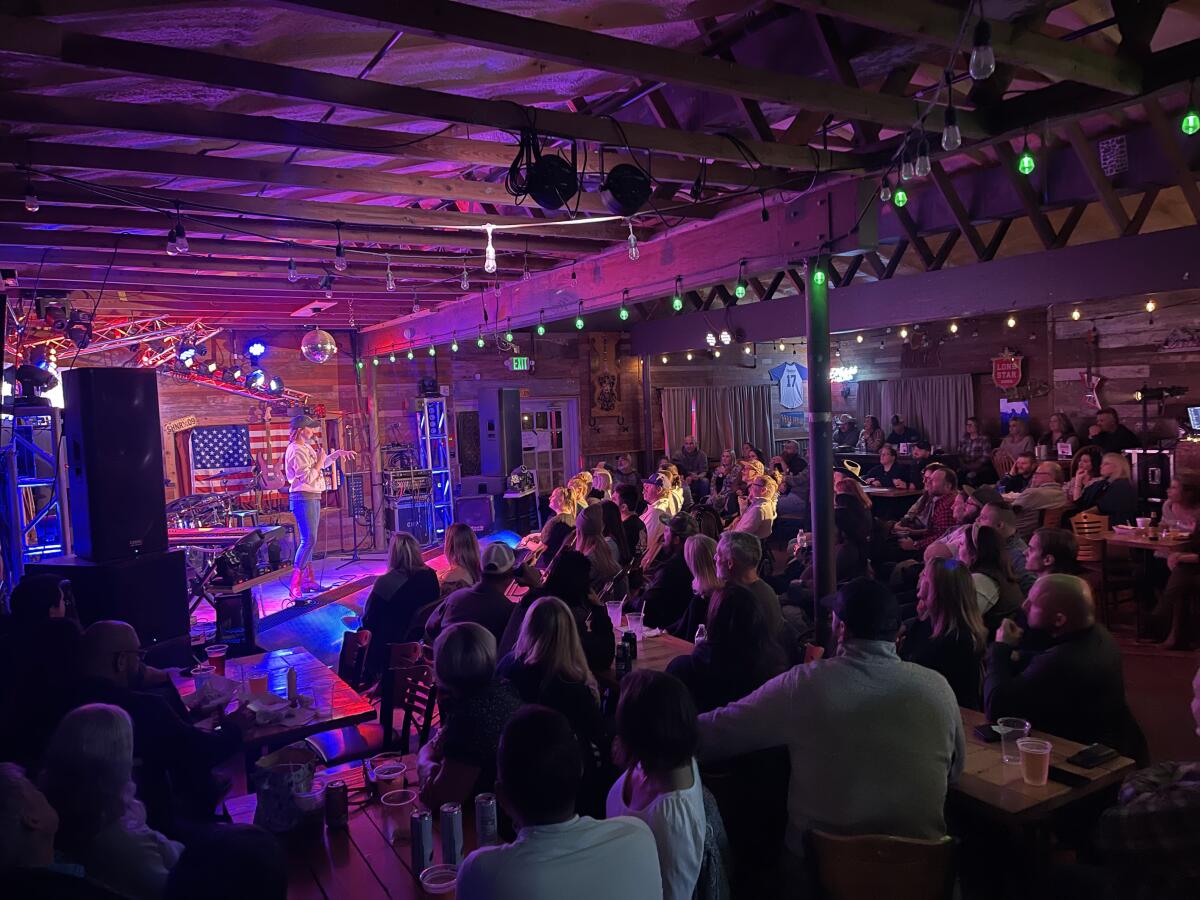
Laughs outside of downtown
Caitlin Benson, comedian and co-owner of Can’t Even Comedy: Doing shows in the suburbs of Austin, we realized that a lot of people don’t want to come to 6th Street [downtown Austin] to see comedy. But those [suburban] audiences, not only are they there to have a good time, they’re appreciative of the fact that we’re coming to them versus them having to come to us. …Yo u’re also not really competing [with other shows], you’re just showing up to their favorite spots in their neighborhood and bringing them high-quality entertainment and they’re happy to pay for it.
Becoming the third coast of comedy
Valerie Lopez, creator of Comedy Wham!: For the last two years, we’ve been living through an experience where you have a large school district that has like a bunch of middle schools and then all of a sudden everybody shows up at the high school and they’re trying to figure out who’s cool, who’s the jock, who’s the nerd, who’s going to supply me my drugs, etc. That’s kind of what the scene has been like in the last couple of years. And I think we’re close to the other edge of that, where people are able to figure out who everybody is. When [Joe] Rogan and [Brian] Redban showed up, and when Rebecca [Trent] showed up with her New York City credentials [and opened the Creek and the Cave], people are like, “Oh, this isn’t just hometown high school land anymore, this is top-tier high school.” I think this year, we officially became the third coast of comedy. We were very much in the shadow of L.A. and New York. And when people left Austin to pursue their careers, that’s where they went. But now they don’t necessarily have to. They can be based here and be successful.
Dowdy: I liken [the Austin comedy scene] to the grunge scene in Seattle in the ’90s — it’s just booming right now. This is where it’s at. We’re gonna be talking about this in 20 years. This is going to be something that we participated in and we got to bear witness to, this huge comedy surge, and it just so happens that it’s all downtown.
Redban: Me and [Rogan], we’re not doing this for the money. I’m sure some other club owners are but I don’t give a s— about money. I did this more as an investment into comedy and into the city. We’ve talked so many people into living here. This is the place to live — now we’re just blowing it up.
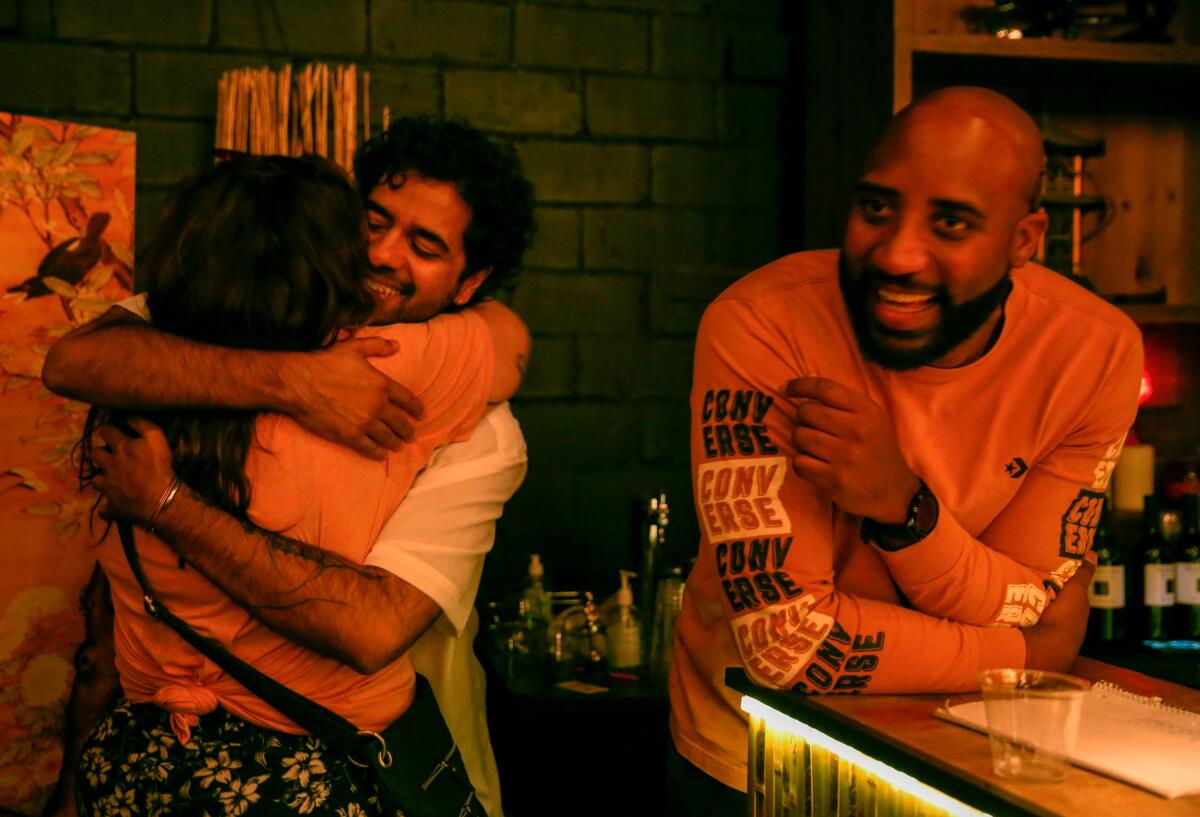
There’s room for everyone
Maxwell Benson, co-owner of Can’t Even Comedy: What a lot of the comedy community that may be jaded about Rogan coming here and people like us coming here don’t realize is that more comedy is better for everyone. People that Rogan introduces into his club, they’re not niche but they represent a certain thing. What Caitlin and I do as a female-run business with Caitlin at the head of it brings a totally different aspect to the comedy. So I look at it as a whole pie whereas people look at it like there’s only one pie and Rogan’s taking all of it — no, there’s 17 other slices that you don’t even know about.
Bak Zoumanigui, comedian: I personally don’t see [the growth of the Austin comedy scene as a] bad thing, especially because Cap City [Comedy Club] is not the only gatekeeper anymore. Before, as a comedian, if you had beef with Cap City, then you weren’t doing Moontower [Comedy Festival], which the club is affiliated with. And when SXSW came up with its own comedy conference you had to pick either Moontower or SXSW — [as a comic] you couldn’t [perform at] both. So coming out of the pandemic you have a booming scene where you have a lot of new people running things. So comedians took it upon themselves to run their own shows. The industry here is now run by comics and there’s more stage time for everybody. It’s still like a big high school, but at least it’s decentralized.
Ashley Simon, general manager of Vulcan Gas Company: There’s enough pie to go around. Everybody who’s not in the industry always worries how all these clubs are functioning with having all these venues going and having so many options, but I think it’s great — people can pick and choose. And if there’s a show that’s sold out, there’s another one down the street that’s doing something just as hot.
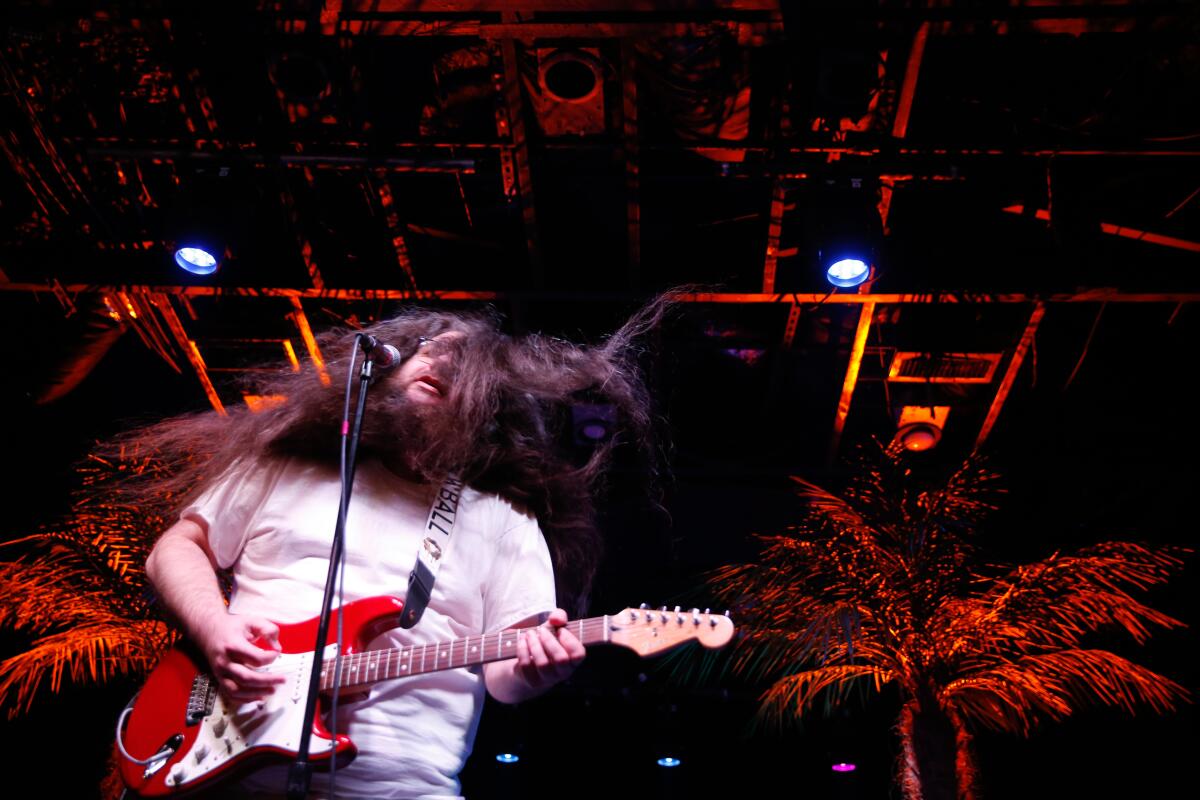
Music laid the foundation
Andre Ricks, co-owner of East Austin Comedy Club and South Austin Comedy Club: Live music kind of laid the foundation for what’s happening in Austin comedy right now. Since it was a music town, they built so many stages in so many rooms. But then during the pandemic, I think, people were trying to save money and still put on a show and they already have all the stages and the equipment to produce a comedy show. So most people [who run comedy clubs here] are just walking into places that are already established for performance.
Zoumanigui: If music is able to latch onto comedy, there could be a way for them to help each other out. Look at the house band for [the podcast] “Kill Tony!” They have the best musicians in town. [Bassist] D-Madness is a legend here, Michael Gonzales is a dope drummer, [keyboardist] John Deas plays for Gary Clark Jr. and now they’re on the world stage with “Kill Tony!” So I think you’re gonna see more comedy shows with house bands or a live show afterward or a DJ party afterward. Capitalize on it — we’re in Austin.
More to Read
The biggest entertainment stories
Get our big stories about Hollywood, film, television, music, arts, culture and more right in your inbox as soon as they publish.
You may occasionally receive promotional content from the Los Angeles Times.
